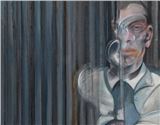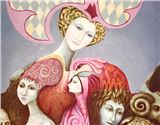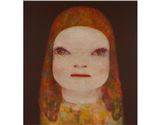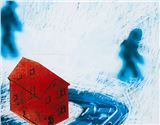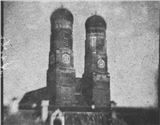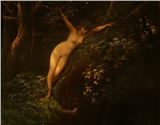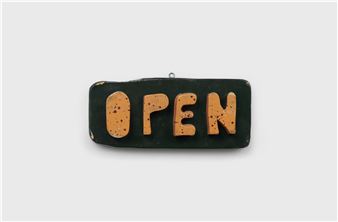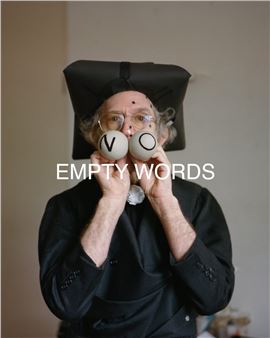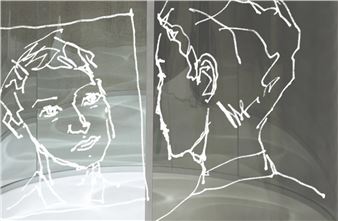Tell me about yesterday tomorrow
The exhibition titled “Tell me about yesterday tomorrow” opens up a dialogue between contemporary art and the remembrance work performed by the Munich Documentation Centre for the History of National Socialism. Works by over 40 international artists explore how to interpret the past and its links to the present day against the background of the historical exhibition. These works, most of them new, invite viewers to consider global realities of life while supplementing German History with international perspectives and creating polyphonic narratives of the past and future. Through the media of painting, photography, installation, video, and performance, artists from different generations, from the Nazi period to the present day, convey many-sided images of history, recounting individual experiences while also highlighting structural connections. The exhibition features selected works of art from the Nazi period and recent decades alongside new works created specifically for this context.
Historian John Henrik Clarke observed how important history is to our present and future: “History is a clock that people use to tell their political and cultural time of day. It is also a compass that people use to find themselves on the map of human geography. History tells a people where they have been and what they have been, where they are, and what they are. Most important, history tells people where they still must go, what they still must be.” (John Henrik Clarke, 1996)
Historical events and our knowledge about them shape our understanding of our world today and our notions of what may lie ahead. Collective remembrance is closely linked with our experiences of the present day. This makes it impossible to draw a final conclusion. Instead, history must be reexamined and recontextualized in an ongoing process. It is also important to consider who interprets the past, and based on what experiences. Which stories are told, and whose stories are heard – or end up being suppressed, consciously or unconsciously? How do we deal with different voices and ambivalence?
The works of art collected in “Tell me about yesterday tomorrow” are dedicated to a number of different topics: the resurgence of nationalism, racism, and anti-Semitism; the violent exploitation of humans and the natural world; the cultural and political impact of war, suppression, and trauma; and how national myths are depicted. They testify to how emotions are used to mobilize groups within society, by conjuring up fears and desires and how people are stigmatized as “the Others” while collective narratives are pressed into the service of political ideologies. The exhibition’s international perspective reflects the global dimensions of these critical occurrences.
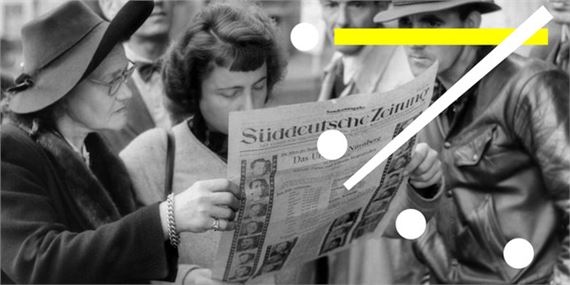
Recommended for you
The exhibition titled “Tell me about yesterday tomorrow” opens up a dialogue between contemporary art and the remembrance work performed by the Munich Documentation Centre for the History of National Socialism. Works by over 40 international artists explore how to interpret the past and its links to the present day against the background of the historical exhibition. These works, most of them new, invite viewers to consider global realities of life while supplementing German History with international perspectives and creating polyphonic narratives of the past and future. Through the media of painting, photography, installation, video, and performance, artists from different generations, from the Nazi period to the present day, convey many-sided images of history, recounting individual experiences while also highlighting structural connections. The exhibition features selected works of art from the Nazi period and recent decades alongside new works created specifically for this context.
Historian John Henrik Clarke observed how important history is to our present and future: “History is a clock that people use to tell their political and cultural time of day. It is also a compass that people use to find themselves on the map of human geography. History tells a people where they have been and what they have been, where they are, and what they are. Most important, history tells people where they still must go, what they still must be.” (John Henrik Clarke, 1996)
Historical events and our knowledge about them shape our understanding of our world today and our notions of what may lie ahead. Collective remembrance is closely linked with our experiences of the present day. This makes it impossible to draw a final conclusion. Instead, history must be reexamined and recontextualized in an ongoing process. It is also important to consider who interprets the past, and based on what experiences. Which stories are told, and whose stories are heard – or end up being suppressed, consciously or unconsciously? How do we deal with different voices and ambivalence?
The works of art collected in “Tell me about yesterday tomorrow” are dedicated to a number of different topics: the resurgence of nationalism, racism, and anti-Semitism; the violent exploitation of humans and the natural world; the cultural and political impact of war, suppression, and trauma; and how national myths are depicted. They testify to how emotions are used to mobilize groups within society, by conjuring up fears and desires and how people are stigmatized as “the Others” while collective narratives are pressed into the service of political ideologies. The exhibition’s international perspective reflects the global dimensions of these critical occurrences.
Artists on show
- Andrea Büttner
- Annette Kelm
- Arthur Jafa
- Aslan Д oisum
- Ayzit Bostan
- Baseera Khan
- Brenda Draney
- Brian Jungen
- Cana Bilir-Meier
- Cemile Sahin
- Diamond Antoinette Stingily
- Eitan Efrat
- Else Lasker-Schüler
- Emeka Ogboh
- Emil Nolde
- Gregor Schneider
- Hito Steyerl
- Joanna Piotrowska
- Jon Rafman
- Jumana Manna
- Kader Attia
- Ken Lum
- Kent Monkman
- Keren Cytter
- Lawrence Abu Hamdan
- Leon Kahane
- Loretta Fahrenholz
- Marcel Odenbach
- Michaela Meise
- Michaela Melián
- Michal BarOr
- Mira Schendel
- Mohamed Bourouissa
- Olaf Nicolai
- Pawel Kowalewski
- Rosemarie Trockel
- Sammy Baloji
- Sebastian Jung
- Sirah Foighel Brutmann
- Stefan Artur Nacht-Samborski
- Trevor Paglen
- Willem de Rooij
- Ydessa Hendeles
- Zelimir Zilnik

 ARTISTS
ARTISTS
